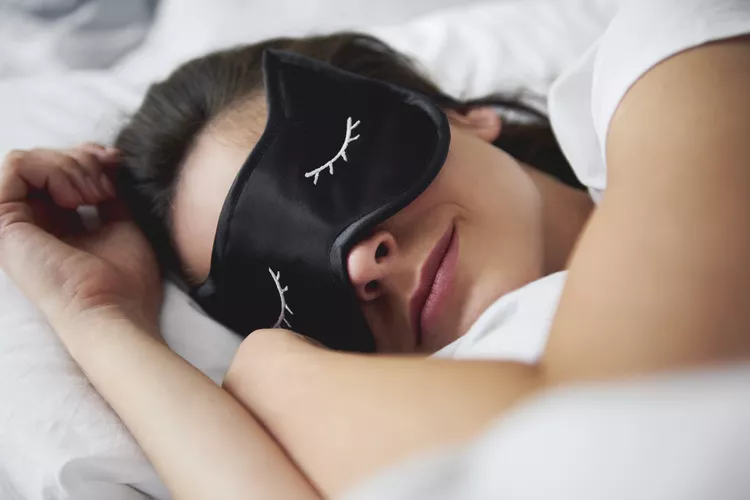Tech-Enhanced Sleep Solutions: Revolutionizing Rest for Better Health
In an era of constant connectivity and fast-paced living, achieving quality sleep has become a challenge for many. Technology is stepping in to offer innovative solutions, with smart mattresses, noise-canceling devices, and circadian lighting systems leading the charge. These tech-enhanced sleep solutions aim to optimize rest, improve overall health, and transform bedrooms into sanctuaries of relaxation and recovery.
The Importance of Sleep for Health and Well-Being
Quality sleep is a cornerstone of physical and mental health, influencing everything from immune function to emotional stability. However, modern lifestyles often disrupt natural sleep patterns, leading to issues like insomnia, fatigue, and decreased productivity. Tech-enhanced sleep solutions address these challenges by creating environments and habits that promote better sleep, helping individuals wake up feeling refreshed and rejuvenated.
Smart Mattresses for Personalized Comfort
Smart mattresses are redefining the way people sleep by offering customizable comfort and advanced features. These mattresses use sensors to monitor sleep patterns, heart rate, and movement, providing users with detailed insights into their sleep quality. Some models adjust firmness or temperature based on individual preferences or detected sleep stages, ensuring optimal comfort throughout the night. By personalizing the sleep experience, smart mattresses contribute to deeper and more restorative rest.
Noise-Canceling Devices for Undisturbed Sleep
Noise pollution is a common disruptor of sleep, especially in urban environments. Noise-canceling devices, such as white noise machines and smart earbuds, are helping individuals create quieter sleep environments. These devices mask or cancel out disruptive sounds, such as traffic or noisy neighbors, allowing users to fall asleep and stay asleep more easily. Many also include calming soundscapes or relaxation programs designed to ease the mind and prepare the body for rest.
Circadian Lighting Systems to Align with Natural Rhythms
Circadian lighting systems are designed to mimic natural light patterns, supporting the body’s internal clock and improving sleep quality. These systems adjust the intensity and color of light throughout the day, promoting alertness in the morning and relaxation in the evening. Warm, dim lighting in the hours before bedtime encourages the production of melatonin, the hormone responsible for sleep. By aligning with the body’s circadian rhythms, these systems help users fall asleep faster and wake up feeling more energized.
Wearable Sleep Trackers for Data-Driven Insights
Wearable sleep trackers, such as smartwatches and fitness bands, are becoming essential tools for monitoring sleep habits. These devices track metrics like sleep duration, cycles, and disruptions, providing users with actionable insights to improve their rest. Many wearables sync with mobile apps, offering personalized tips and progress tracking over time. This data-driven approach empowers individuals to identify and address factors that may be negatively impacting their sleep.
Temperature Control for Optimal Sleep Environments
Temperature plays a critical role in sleep quality, and tech solutions are addressing this by offering precise temperature control. Devices like cooling pads, heated blankets, and climate-controlled smart mattresses allow users to set their preferred sleeping temperature. These technologies ensure that the sleeping environment remains comfortable throughout the night, reducing instances of waking due to overheating or cold.
Sleep-Enhancing Apps for Relaxation and Meditation
Sleep-focused apps are helping individuals unwind and prepare for rest through guided meditation, breathing exercises, and relaxing soundscapes. These apps, often compatible with other smart sleep devices, create a seamless bedtime routine that encourages relaxation. By addressing stress and anxiety, which are common barriers to sleep, these apps play a vital role in improving mental well-being and fostering healthier sleep patterns.
AI and Machine Learning in Sleep Optimization
Advancements in AI and machine learning are further enhancing sleep technology by offering tailored recommendations. Smart devices analyze patterns and adjust settings automatically to improve sleep efficiency. For example, a smart thermostat may lower room temperature if the device detects restlessness, or a lighting system may dim earlier based on observed bedtime trends. These intelligent adjustments create a more intuitive and personalized sleep experience.
Accessibility and Affordability of Sleep Tech
While early iterations of sleep technology were often expensive, recent innovations have made these solutions more accessible and affordable. From budget-friendly smart lighting systems to compact white noise machines, there are options to suit a range of needs and budgets. The increased availability of sleep tech ensures that more individuals can benefit from these advancements, promoting widespread improvements in sleep health.
The Future of Tech-Enhanced Sleep Solutions
The future of sleep technology holds exciting possibilities, with emerging innovations focused on further integrating devices into daily routines. Wearable devices may evolve to provide real-time feedback on stress levels or suggest optimal nap times, while advancements in AI could enable even more precise personalization. As awareness of the importance of sleep grows, the development of accessible, effective sleep technologies is set to remain a priority.
In conclusion, tech-enhanced sleep solutions are revolutionizing how individuals approach rest and recovery. From smart mattresses and noise-canceling devices to circadian lighting and wearable trackers, these technologies offer personalized tools for optimizing sleep quality. By addressing common sleep disruptors and promoting healthy habits, they empower individuals to achieve better rest and, ultimately, better health.


































